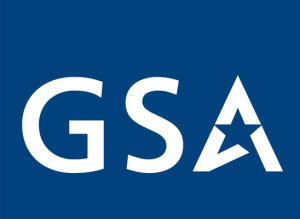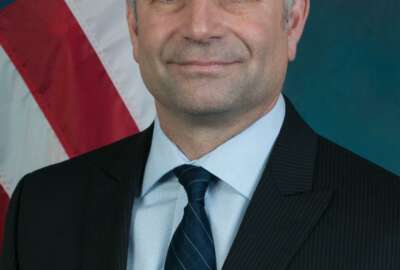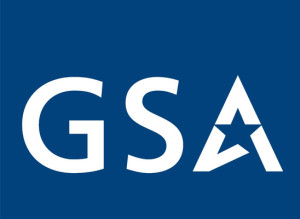
‘A punch to the gut’ is how some described the news of GSA’s most recent merger
Industry experts reacted with optimism and surprise to the decision by the General Services Administration to merge the Technology Transformation Service into the...
The decision by the General Services Administration to merge the Technology Transformation Service into the Federal Acquisition Service shocked much of the federal community.
From those observers who have been following GSA for decades, to the employees, to even some in the White House, the news on June 7 was truly unexpected.
In case you weren’t paying attention last week, GSA announced its experiment with a third service was ending, TTS would now be a part of FAS and the commissioner would be a political position instead of a career one. GSA launched TTS in May 2016, meaning the third service lasted a little over a year.
Several GSA sources described the feeling of the TTS staff and others as a “punch to the gut,” or “no one had any idea this was happening,” and “this dropped like a big bomb.”
Other sources say some in the Office of Management and Budget found out through press reports and agency contacts, and even outgoing FAS Commissioner Tom Sharpe, who was on the West Coast for an information and training session, and may have found out just the morning before the GSA-wide email went out announcing the changes.
A GSA spokesperson said Sharpe remains as the FAS commissioner until Alan Thomas starts at the agency later in June. Sources say Thomas, an industry veteran and former Presidential Management Fellow, would start somewhere around June 26.
The joke that is going around government now is don’t take a business trip to the West Coast and expect to have a job when you come back. (See Comey, James as example number one).
So once we all get past the shock and awe of the announcement, the reaction from industry is decidedly mixed.
Some say merging TTS into FAS was inevitable because of the third service’s funding stream was limited and the 18F organization was just another acquisition-related service agencies could take advantage of, just like the assisted acquisition services.
“This move gives TTS a more stable foundation for its activities, especially in support of the White House’s American Technology Council and Office of American Innovation,” said Trey Hodgkins, senior vice president of the IT Alliance for Public Sector (ITAPS). “GSA stood up TTS to operationalize a lot of activities under the Obama administration. It needed a budget. It needed to hire people. But TTS has been operating in isolation to some extent, and now they can influence federal acquisition in a different way.”
Larry Allen, president of Allen Federal Business Partners and a longtime GSA expert, said he didn’t think the merger was intended to diminish the role of TTS.
“It’s more of an evolution to try to find these functions a more permanent home within the existing GSA infrastructure. Whether or not that’s the intent, TTS and 18F proponents will have to be very careful that these functions continue to be able to compete for personnel and financial resources relative to other missions at FAS,” Allen said. “Standing up TTS as service on par as FAS and PBS was an artifice done for a specific purpose whose validity is questionable. This makes more sense to house the organization in FAS. One of the things this merger also means is it’s time for TTS, specifically 18F, to grow up and walk on its own two feet by showing more attention to the bottom line.”
Allen’s last point, the Government Accountability Office reported last June that 18F estimates its revenues will fall short of its operating expenses by $14.9 million in 2016, $12.3 million in 2017, and $127,000 by 2018. By 2019, 18F says it expects to bring in more revenue than it spends, by about $1.1 million.
Now some in the community have said 18F is on track this year to close the revenue-to-spending gap even further. So by moving it into FAS, which doesn’t receive congressional appropriations, the drive toward breaking even will have to come more quickly.
Alan Chvotkin, the senior vice president of the Professional Services Council, cautioned about a potential conflict arising from moving TTS into FAS.
He said FAS’s mission is to provide acquisition support, and while technology is a major part of that, there is a host of functions that are important.
“I could see there being some internal conflicts with the U.S. Digital Service, 18F and role of FAS that will send some conflicting signals to agencies and industry,” he said. “18F and USDS are enablers to help agencies look at technology upgrades and are agnostic in how that was accomplished through the acquisition system. Even though 18F was building an acquisition team, I think they had one contracting officer on detail from FAS, 18F could lose that agnostic piece. Now technology becomes another part of the acquisition activities rather than technology having a broader purpose and not being focused on acquisition.”
Chvotkin added TTS’ role in modernizing government, working with OAI and the ATC, also could be impacted if some see this change as a diminished role for TTS.
On the other hand, ITAPS’ Hodgkins said TTS could give FAS an important culture boost.
While FAS has been trying to bring in innovative companies and approaches to technology, that is the bread and butter of TTS, and particularly 18F.
“The blending of two cultures will be a beneficial outcome. Sustaining FAS operationally is critical to our members and their government customers,” he said. “We all were in agreement that we must begin to incorporate the culture and lot of philosophy that TTS embodies into how the government acquires and thinks about technology. All of this will end up being a positive outcome.”
Of course, Allen and several other longtime observers pointed out that GSA tends to reorganize itself every few years and overall, few things rarely change in terms of mission focus.
Starting in the 1970s and into the 1990s, GSA was the home to the Federal ADP and Telecommunication Service. That service became the Federal Telecommunications Service and then the Technology Service (FTS) in 2004. GSA then merged FTS with the Federal Supply Schedule (FSS) Service in 2006 to become FAS.
So will this latest move really make a difference in how GSA meets its mission? A lot will depend on how the organizations come together over the first six months under Thomas and, eventually, a new administrator.
Return to the Reporter’s Notebook
Copyright © 2025 Federal News Network. All rights reserved. This website is not intended for users located within the European Economic Area.
Jason Miller is executive editor of Federal News Network and directs news coverage on the people, policy and programs of the federal government.
Follow @jmillerWFED





